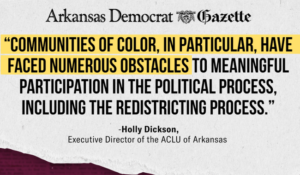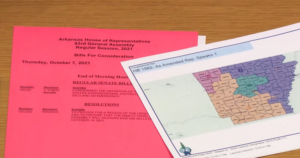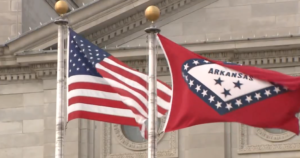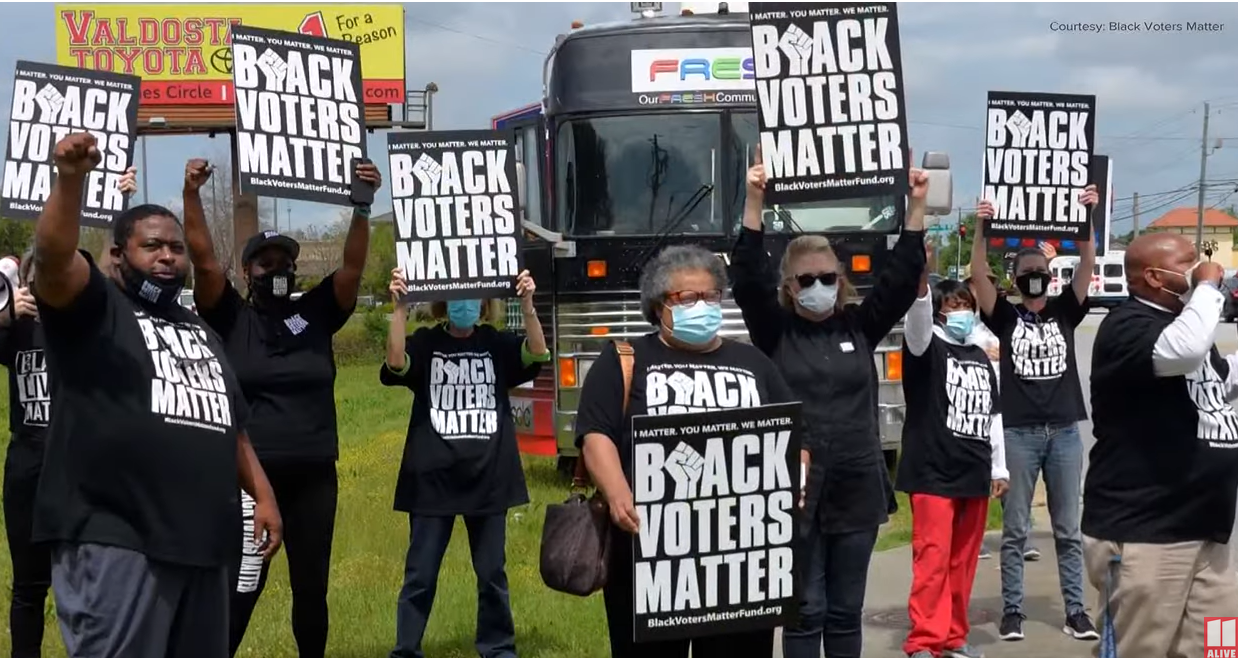Photos: ACLU\YouTube Screenshots
It was only a matter of time before a new threat to the Voting Rights Act appeared on the scene. A federal appeals court launched an appalling attack on the landmark law last week. That’s the bad news. The good news is that the decision is so unmoored from precedent that even the current ultraconservative Supreme Court is almost certain to reverse it.

In June, advocates were relieved when the Supreme Court upheld a lower-court decision finding that Alabama’s congressional map violated the Voting Rights Act.
That ruling was and is rightly celebrated as a huge win. Many had feared that the Court’s new radical supermajority would use the Alabama case as an opportunity to complete the work of carving away what remained of the Voting Rights Act.
Instead, Chief Justice John Roberts wrote an opinion that reaffirmed the vitality of the nearly 60-year-old statute. As a result, for the first time in history, Alabama now has a second congressional district where Black voters can elect their preferred candidate.
But few observers expected conservative forces to surrender, and they haven’t. In fact, by all accounts, their actions since reflect an even more emboldened and determined strategy.
Last week, they drew blood when a divided panel of the U.S. Court of Appeals for the Eighth Circuit ruled 2–1 in a case challenging Arkansas’s legislative maps that only the U.S. Justice Department — and never private citizens or citizen groups — can bring lawsuits under Section 2 of the Voting Rights Act. (The issue came up in the first instance in the case, Arkansas NAACP v. Sanders, only because a Trump-appointed lower court judge raised it on his own initiative.)

The opinion has generated outrage for good reason: it is not just wrong but shockingly so, radically out of step with the history of the Voting Rights Act and decades-old practices.
Cases brought by individual voters have long accounted for the overwhelming majority of Section 2 lawsuits. As Chief Judge Lavenski R. Smith noted in his dissent in the Arkansas case, “Over the past forty years, there have been at least 182 successful Section 2 cases; of those 182 cases, only 15 were brought only by the Attorney General [of the United States].” And of course, the Supreme Court just ruled in June in favor of Black voters in Alabama without raising the slightest suggestion that maybe, just maybe, the wrong parties were bringing the case.
What’s more, Congress had full knowledge that individual voters were bringing claims. Between 1965 and 2006, Congress amended or renewed the Voting Rights Act five separate times. Not once did the fact that voters were bringing claims under Section 2 raise alarms or become an issue that Congress thought it needed to seriously debate. In fact, Congress regularly included cases brought by individual voters in the legislative record for renewals. Congress not only knew individual voters were bringing claims, it cited the practice with approval.
Under the unmoored theory adopted by the Eighth Circuit panel, voters of color facing a discriminatory law could only urge the Justice Department to take action. If the resource-constrained (and sometimes highly politicized) department declined to bring a case, minority voters would be out of luck.
The result would be catastrophic. Section 2 suits by “private attorneys general” have been essential to achieving fair representation and fair voting election practices at every level of government. Take Ferguson, Missouri. Before a suit by Black voters, the local school board in an increasingly diverse but troubled community had been nearly all white. As a result of changes, Black members are now a majority of the board. That result was possible because individual voters could bring Section 2 claims. Similarly, discriminatory voter ID laws in North Carolina and Texas have been struck down due to Section 2 lawsuits by individual voters. The list goes on and on.
Simply put, if the Arkansas opinion were to somehow become the law of the land, the Voting Rights Act would effectively cease to be a practical enforcement tool for much of the country.
But while the latest threat is real, there’s reason to remain optimistic. The Eighth Circuit opinion is not unanimous and is very poorly reasoned. There’s good cause to think it will be overturned, perhaps even quickly. That could come from the Supreme Court or perhaps the Eighth Circuit itself if the court decides to revisit the three-judge panel’s decision with all of its judges sitting.
Nevertheless, the fact that the decision even exists is a timely reminder that the assaults on the Voting Rights Act, like the discriminatory policies that the law addresses, are far from over. The sad reality is that a law heralded as the single most effective civil rights legislation in American history continues to be viewed by many not as a guarantee of equality but as a threat.
The need for Congress to renew, strengthen, and adapt the Voting Rights Act continues to be as urgent as ever.








